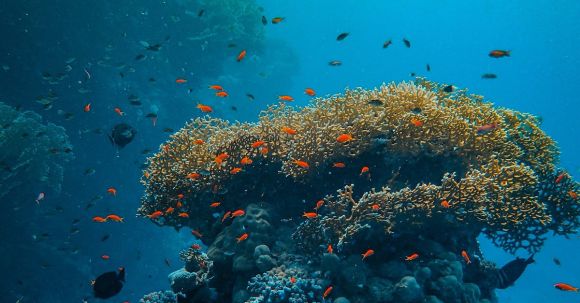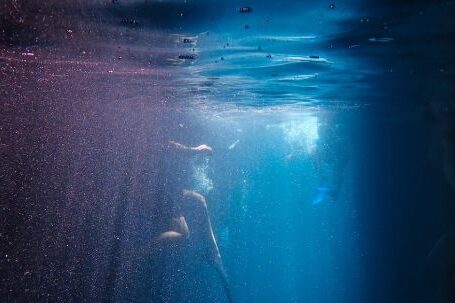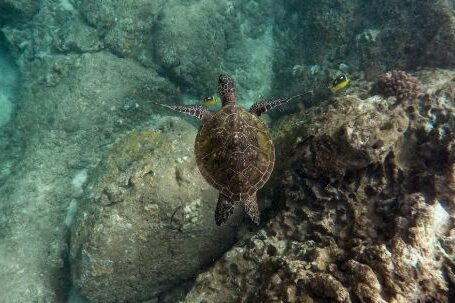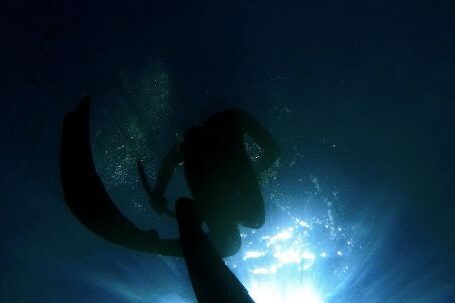Beneath the surface of the world’s oceans lies a breathtaking ecosystem teeming with life and vibrant colors: coral reefs. These stunning underwater formations are home to an incredible array of marine species, making them a must-visit destination for divers and nature enthusiasts alike. In this article, we will explore the beauty and importance of coral reefs, as well as the threats they face and how we can help protect them.
The Beauty of Coral Reefs
Coral reefs are often referred to as the “rainforests of the sea,” and for good reason. These intricate structures are made up of millions of tiny coral polyps, which secrete calcium carbonate to build their skeletons. The result is a stunning mosaic of colors, shapes, and textures that rival the most vibrant of landscapes.
The vibrant colors of coral reefs are a result of the symbiotic relationship between the coral polyps and microscopic algae called zooxanthellae. These algae live inside the coral tissues, providing them with food through photosynthesis. In return, the coral provides the algae with a protected environment and the necessary nutrients to thrive. This partnership is what gives coral reefs their striking hues, ranging from vibrant blues and greens to intense reds and purples.
The Importance of Coral Reefs
Beyond their sheer beauty, coral reefs play a crucial role in supporting marine life. They provide shelter, food, and breeding grounds for a vast number of species, including fish, crustaceans, and mollusks. In fact, it is estimated that coral reefs are home to over a quarter of all marine species, making them one of the most biodiverse ecosystems on the planet.
Coral reefs also act as natural barriers, protecting coastal communities from storms and erosion. Their complex structures absorb wave energy, reducing the impact of strong currents and preventing coastal erosion. In this way, coral reefs help to safeguard both human populations and the delicate ecosystems that exist along our coastlines.
Threats to Coral Reefs
Despite their immense ecological value, coral reefs are under threat from a range of human activities. Climate change, in particular, poses a significant risk to these delicate ecosystems. Rising sea temperatures and increased ocean acidification, both of which are driven by greenhouse gas emissions, can cause coral bleaching. This occurs when the zooxanthellae are expelled from the coral polyps, leading to the death of the coral and the loss of its vibrant colors.
Pollution, overfishing, and destructive fishing practices also contribute to the degradation of coral reefs. Runoff from agricultural activities can introduce excess nutrients into the water, fueling the growth of harmful algae that suffocate coral. Overfishing disrupts the delicate balance of marine ecosystems, while practices such as dynamite fishing and coral harvesting cause physical damage to the reefs.
Protecting Coral Reefs
Despite the challenges they face, there is hope for the future of coral reefs. Conservation efforts, such as the establishment of marine protected areas and sustainable fishing practices, can help to mitigate the threats facing these fragile ecosystems. Additionally, reducing our carbon footprint and transitioning to renewable energy sources can help to slow down the effects of climate change.
Individuals can also make a difference by making responsible choices when it comes to seafood consumption and supporting organizations working to protect coral reefs. By raising awareness about the importance of these vibrant underwater habitats, we can inspire others to take action and ensure that future generations can continue to marvel at the beauty of coral reefs.
In conclusion, coral reefs are a true underwater paradise, bursting with vibrant colors and teeming with life. These delicate ecosystems face numerous threats, but with collective efforts, we can work towards their conservation and ensure that they remain a breathtaking spectacle for generations to come. Let us appreciate and protect the beauty of coral reefs, for they are truly nature’s masterpieces.





